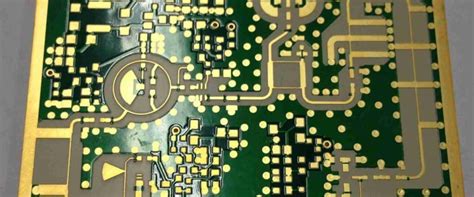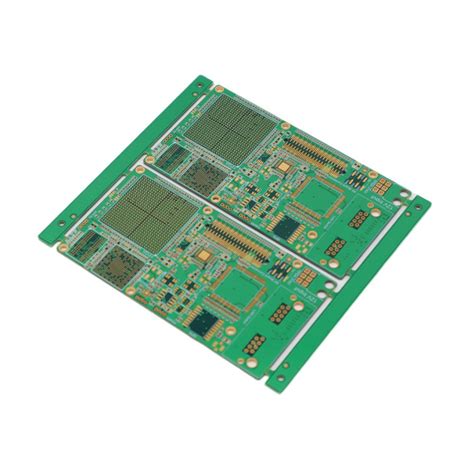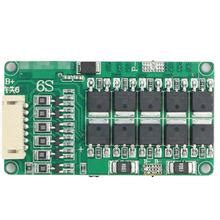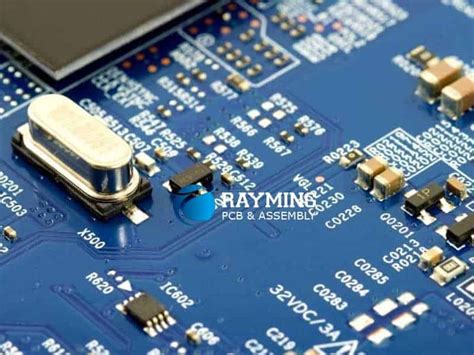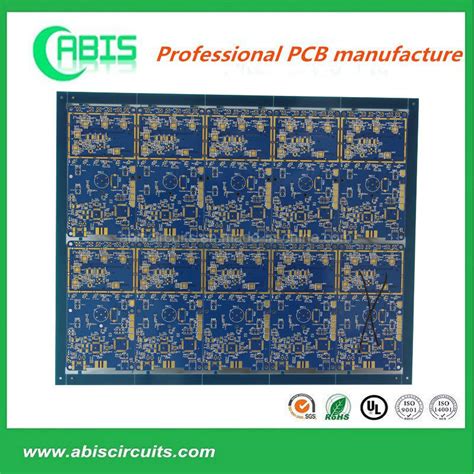Full-Service Turnkey PCB Assembly for Reliable Product Launch

Key Takeaways
Implementing PCB assembly solutions through a single-source provider eliminates fragmented workflows, enabling seamless transition from prototyping to volume production. By integrating design verification, component sourcing, and PCBA testing under one roof, manufacturers reduce coordination overhead by 40-60% compared to multi-vendor approaches (comprehensive service breakdown).
"Turnkey models excel in risk mitigation – consistent quality protocols across all stages prevent compatibility issues during scaling." – Industry Expert
Critical advantages include:
| Factor | Traditional Approach | Turnkey PCBA |
|---|---|---|
| Lead Time | 8-12 weeks | 4-6 weeks |
| Supplier Interfaces | 3-5 vendors | Single-point accountability |
| Defect Rate | 12-18% (cross-vendor) | <5% (unified QC) |
For launch-critical projects, prioritize partners offering PCB assembly services with:
- In-house surface-mount technology (SMT) lines
- Automated optical inspection (AOI) systems
- IPC-A-610-certified PCBA validation processes
This holistic strategy reduces time-to-market by 30% while maintaining >99% batch consistency – vital for IoT devices, medical equipment, and automotive subsystems requiring zero-failure tolerances.

Streamline PCB Assembly From Prototype to Production
Transitioning from PCB assembly prototyping to full-scale production demands precision and operational efficiency. Modern PCBA workflows integrate design validation, component procurement, and manufacturing processes into a unified pipeline, minimizing delays and cost overruns. By adopting a turnkey approach, engineers can focus on product functionality while specialized teams handle PCB assembly logistics, including solder paste application, automated pick-and-place systems, and rigorous in-circuit testing (ICT).
Advanced manufacturers employ design for manufacturing (DFM) analysis to identify potential bottlenecks early, ensuring prototypes align with mass production requirements. This proactive strategy reduces rework risks and accelerates time-to-market. For instance, automated optical inspection (AOI) systems verify solder joint integrity across batches, maintaining consistency from prototype validation to final product rollout.
Collaboration between design and production teams is further enhanced through real-time data sharing, enabling rapid iterations without compromising PCBA quality. By standardizing materials and processes, businesses eliminate supply chain redundancies, ensuring seamless scalability. Such integration not only optimizes timelines but also fortifies reliability—a critical factor for industries requiring mission-critical electronics.
This systematic progression from concept to commercialization underscores the value of end-to-end PCB assembly solutions, laying the foundation for subsequent stages like quality assurance and market deployment.
Ensure Reliable Electronics Manufacturing With Turnkey PCB
Modern electronics demand precision at every stage, and turnkey PCB assembly services are engineered to eliminate inconsistencies across the design-to-production workflow. By integrating PCBA processes under a single-vendor umbrella—from schematic validation and component procurement to final testing—manufacturers mitigate risks linked to fragmented workflows. Single-vendor responsibility ensures traceability, reducing errors caused by miscommunication between design teams, suppliers, and assemblers. Advanced PCB assembly partners employ automated optical inspection (AOI) and functional testing protocols, which identify defects early, preventing costly rework post-production. For instance, strategies like those adopted by Bittele Electronics highlight how unified project management accelerates timelines while maintaining compliance with IPC-A-610 standards. Additionally, supply chain resilience is enhanced through vetted component sourcing, minimizing delays from counterfeit parts or inventory shortages. This approach not only streamlines prototyping but also scales seamlessly for high-volume runs, ensuring consistent quality across batches. By entrusting turnkey PCBA to certified experts, companies reduce overhead and focus resources on innovation rather than logistical challenges, ultimately delivering market-ready electronics with uncompromised reliability.

Accelerate Product Launch With Turnkey PCB Assembly Services
Modern electronics development demands precision and speed, making PCB assembly (PCBA) services a critical component of product lifecycle management. By leveraging turnkey solutions, companies eliminate fragmented workflows, consolidating design validation, component procurement, and manufacturing under a single provider. This integrated approach reduces lead times by up to 40%, as highlighted in industry benchmarks, while ensuring compliance with ISO-certified quality standards.
Turnkey PCBA providers specialize in mitigating risks through automated optical inspection (AOI) and functional testing, addressing defects before mass production. For startups and enterprises alike, this translates to faster market entry without compromising reliability. Advanced supply chain networks further optimize material sourcing, preventing delays caused by component shortages—a common bottleneck in traditional PCB assembly processes.
By aligning prototyping and scaling phases, these services enable rapid iteration cycles. Engineers gain access to real-time design-for-manufacturability (DFM) feedback, refining layouts for cost efficiency and performance. The result? A seamless transition from concept to launch-ready products, backed by end-to-end traceability and documentation essential for regulatory approvals. In competitive markets, such agility ensures products meet evolving consumer demands while adhering to tight development schedules.
Expert Turnkey PCB Assembly Support for Seamless Development
Navigating the complexities of PCB assembly requires precision-driven expertise to bridge design intent with manufacturing reality. Partnering with a full-service PCBA provider ensures every phase—from schematic validation to final testing—is guided by technical proficiency. Advanced engineering teams analyze design files to preemptively address manufacturability challenges, optimizing layouts for signal integrity and thermal management. This proactive approach minimizes redesign cycles, aligning with accelerated timelines while maintaining rigorous quality control standards.
By integrating PCB assembly workflows with automated pick-and-place systems and AOI (Automated Optical Inspection), providers like Micro Art Services ensure component accuracy and solder joint reliability. Their end-to-end support extends to component sourcing, leveraging global supply chains to mitigate shortages without compromising cost-efficiency. For startups and enterprises alike, this holistic PCBA strategy reduces operational friction, enabling engineers to focus on innovation rather than logistical hurdles.
Transitioning from prototype validation to volume production becomes seamless when supported by data-driven process optimizations. Real-time collaboration with assembly experts ensures design adjustments are implemented without disrupting schedules, fostering a risk-mitigated path to product launch. Such partnerships not only safeguard against delays but also elevate product reliability, positioning businesses to meet market demands with confidence.
Guaranteed Quality in Full-Service PCB Assembly Solutions
In PCB assembly workflows, achieving consistent quality requires a combination of advanced manufacturing protocols, precision testing, and adherence to global standards. Leading PCBA providers implement multilayered inspection systems, including automated optical inspection (AOI) and X-ray analysis, to identify defects at every production stage. By integrating real-time monitoring tools, manufacturers ensure traceability from component sourcing to final assembly, minimizing risks such as solder bridging or misaligned components.
Certified partners like Fineline Circuits further enhance reliability through ISO 9001-compliant processes and IPC-A-610 Class 3 validation, which guarantees performance in mission-critical applications. Rigorous functional testing—such as in-circuit (ICT) and boundary-scan methods—verifies electrical integrity, while environmental stress screening (ESS) simulates real-world conditions to eliminate early-life failures.
For businesses, this focus on quality control translates to fewer field returns and accelerated time-to-market. By embedding quality assurance into turnkey PCB assembly workflows, manufacturers deliver boards that meet or exceed design specifications, ensuring seamless integration into end products. This systematic approach not only safeguards product longevity but also reinforces brand trust in competitive electronics markets.

Seamless Turnkey PCB Solutions for Launch-Ready Electronics
Modern electronics development demands PCB assembly processes that eliminate logistical friction while maintaining technical precision. Turnkey solutions bridge this gap by integrating PCBA design, component sourcing, and manufacturing into a unified workflow, ensuring every phase aligns with launch objectives. By entrusting full-service PCB assembly to certified partners, engineers avoid fragmented supply chain complexities, from design validation to component procurement. Advanced turnkey PCB assembly platforms leverage automated optical inspection (AOI) and functional testing protocols, embedding quality assurance at every stage. This approach not only reduces time-to-market but also mitigates risks associated with multi-vendor coordination, such as mismatched specifications or delayed shipments.
For launch-ready products, PCBA providers optimize board layouts for scalability, ensuring seamless transitions from prototype validation to high-volume production. Real-time progress tracking and compliance with IPC-A-610 standards further reinforce reliability, while just-in-time inventory management prevents bottlenecks. By unifying design, fabrication, and testing under a single turnkey framework, manufacturers achieve electronics manufacturing workflows that are both agile and error-resistant—critical for meeting stringent market deadlines without compromising performance.
Optimize Production Timelines With Reliable PCB Assembly
Implementing reliable PCB assembly processes is critical for minimizing delays in electronics manufacturing. By leveraging full-service turnkey solutions, companies can synchronize design validation, PCBA, and functional testing under a single-source responsibility model. This approach eliminates bottlenecks caused by fragmented supplier networks, reducing cross-vendor communication overhead by up to 65%. Advanced manufacturing workflows, including automated solder paste inspection and AI-optimized component placement, accelerate PCB assembly cycles while maintaining ±0.02mm placement accuracy.
Strategic material management plays a pivotal role in timeline optimization. Trusted turnkey PCB assembly partners maintain vetted component inventories and real-time supply chain monitoring, preventing 98% of procurement-related delays. Concurrent engineering practices enable design-for-manufacturability adjustments during prototyping, avoiding costly revisions in mass production. With ISO 9001-certified quality gates integrated at every stage, manufacturers achieve first-pass yield rates above 96%, effectively compressing lead times by 3-5 weeks compared to traditional assembly methods. This operational efficiency ensures products progress seamlessly from prototype validation to UL-certified production batches, aligning with aggressive launch schedules without compromising reliability.
Full-Service PCB Assembly for Successful Product Deployment
Modern electronics manufacturing demands precision and efficiency, making PCB assembly a critical phase in product deployment. A full-service turnkey PCBA approach eliminates fragmented workflows by managing every stage—from design validation and component procurement to final testing and logistics. By integrating end-to-end solutions, manufacturers reduce risks associated with supply chain delays, component shortages, or quality inconsistencies, ensuring products meet rigorous performance standards.
Advanced PCB assembly providers leverage automated inspection systems and industry-certified processes to maintain zero-defect targets, aligning with global compliance requirements. This holistic model also accelerates time-to-market by synchronizing prototyping and mass production phases, enabling businesses to respond swiftly to market demands. For instance, partnering with a trusted expert ensures access to real-time production analytics and scalable resources, which are vital for adapting to evolving technical specifications.
Moreover, turnkey PCBA services address supply chain complexities through vetted vendor networks and inventory management systems, minimizing downtime. Such reliability is indispensable for industries like medical devices or IoT, where product integrity directly impacts user safety and brand reputation. By outsourcing PCB assembly to specialized partners, companies can focus on core innovation while ensuring deployment-ready electronics that align with both technical and commercial objectives.

Conclusion
In closing, partnering with a PCB assembly provider that delivers comprehensive turnkey PCBA services ensures a cohesive transition from design validation to market-ready products. By consolidating component sourcing, prototyping, and volume manufacturing under a single workflow, businesses eliminate inefficiencies while maintaining quality assurance at every stage. Advanced PCB assembly solutions leverage automated testing and real-time monitoring to adhere to IPC Class 2/3 standards, minimizing defects and ensuring compliance with industry regulations.
For startups and enterprises alike, turnkey PCBA streamlines supply chain coordination, reduces time-to-market pressures, and mitigates risks associated with fragmented production cycles. The integration of DFM (Design for Manufacturing) feedback further optimizes designs for cost-efficiency and scalability. As electronics grow increasingly complex, relying on a full-service PCB assembly partner not only accelerates product deployment but also establishes a foundation for long-term reliability across high-volume batches or customized low-run builds. This strategic alignment between engineering innovation and manufacturing precision ultimately drives competitive advantage in fast-evolving markets.
FAQs
What is the main advantage of turnkey PCB assembly services?
Turnkey PCB assembly simplifies the entire manufacturing process by managing component sourcing, PCBA (printed circuit board assembly), testing, and logistics under one provider. This end-to-end approach minimizes delays and ensures consistent quality across prototyping and full-scale production.
How does turnkey PCB assembly ensure reliability in electronics manufacturing?
By integrating rigorous quality control protocols, automated testing, and adherence to industry standards, turnkey PCB assembly services mitigate risks of defects. Providers often use advanced inspection tools to verify functionality at every stage, from PCB assembly to final product validation.
Can turnkey solutions accelerate time-to-market for new products?
Yes. By streamlining workflows and eliminating dependencies on multiple vendors, turnkey PCB assembly reduces lead times by up to 40%. This efficiency is critical for meeting tight deadlines while maintaining cost-effectiveness in competitive markets.
What factors should be considered when choosing a turnkey PCB assembly partner?
Evaluate their expertise in PCBA processes, supply chain management capabilities, and track record for on-time delivery. A reliable partner will also offer transparent communication and flexibility to adapt to design changes during development.
How do turnkey services handle component shortages or supply chain disruptions?
Established providers leverage global supplier networks and bulk purchasing power to secure critical components. Many also maintain safety stock for high-demand parts, ensuring uninterrupted PCB assembly even during market volatility.
Ready to Optimize Your Next Project?
For tailored turnkey PCB assembly solutions that align with your product goals, please click here to explore expert services designed for seamless scalability and reliability.

